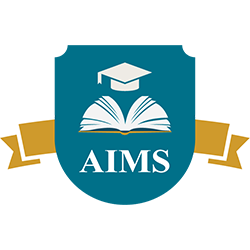Do you want to study in Germany through the Summer 2025 intake? The application deadline for Summer intake 2025 in Germany is in January 2025. Only a few days to go. Don’t miss the opportunity! Get help now from AIMS Education and enjoy your higher education journey in Germany.
Germany is a top destination for international students. This country offers world-class education, affordable tuition, and unparalleled career opportunities. The Summer intake is an excellent alternative for students, who missed the Winter intake.
This guide will help you understand everything about the Summer intake in Germany. You’ll get everything from key dates and eligibility requirements to top universities.
Why Choose the Summer Intake in Germany?
Germany’s Summer intake offers several unique advantages. Summer intake in Germany is an attractive option for international students:
- Only a few students apply for the Summer intake, so you face less competition, increasing your chances of securing admission.
- Many universities offer specialized or niche programs during this intake.
- Students from the Summer intake graduate earlier, so, there are huge opportunities to get a job earlier.
- Starting your studies in the Summer offers a great opportunity to enjoy Germany’s beautiful landscapes and cultural activities.
Key Dates and Deadlines for Summer Intake 2025
Timing is crucial for your application. Below are the important dates and deadlines for Summer intake 2025.
| Application Period | September 2024 – January 2025 |
| Admission Decision | February 2025 |
| Enrollment Deadline | March 2025 |
| Course Start Date | March/April 2025 |
Pro Tip: Begin preparing your application materials 6-8 months before the deadlines to avoid last-minute stress.
Eligibility Requirements
Are you eligible to study abroad? What do you think? However, different countries have different eligibility criteria. Here are the eligibility requirements for the Summer 2025 intake in Germany.
Academic Qualifications
For undergraduate programs, you’ll need a high school diploma or its equivalent recognized by German standards. For postgraduate programs, you’ll need a bachelor’s degree or equivalent qualification.
Language Proficiency
You have to provide proof of proficiency through recognized tests such as IELTS (minimum score of 6.0), TOEFL (80+), or equivalent. Submit results from standardized tests like TestDaF, DSH, or Goethe-Zertifikat, typically at the B2 or C1 level.
Visa Requirements for the Summer 2025 Intake in Germany
Secure a valid student visa to study in Germany. Begin your visa application process at least three months before the start of your program to avoid delays. Prepare and submit the following documents as part of your application package:
- Statement of Purpose (SOP): A detailed explanation of your academic and career goals, as well as your motivation for choosing the program.
- Letters of Recommendation (LORs): Written references from professors, employers, or mentors highlighting your skills and qualifications.
- Academic Transcripts: Official records showcasing your previous educational achievements.
- CV/Resume: An updated document summarizing your educational background, work experience, skills, and other relevant accomplishments.
By ensuring you meet these requirements, you strengthen your application and enhance your chances of admission.
Top Universities for Summer 2025 Intake in Germany
Are you looking for some top universities for the Summer 2025 intake in Germany? Let’s explore 10 top German universities and their deadline for the Summer intake 2025.
| Universities | Summer 2025 Intake Deadline in Germany |
| Bremen University of Applied Sciences | 15 January |
| Bingen Technical University of Applied Sciences | 16 November |
| Catholic University of Eichstätt-Ingolstadt | 15 January |
| Frankfurt University of Applied Sciences | 15 Feb |
| Freie Universität Berlin | 15 January |
| Harz University of Applied Sciences | 15 November |
| Osnabrück University | 28 February |
| Paderborn University | 30 November |
| Saarland University | 15 January |
| Technical University Munich | 30 November |
Popular Courses for Summer Intake
Unlike other study abroad countries, Germany offers a lot of courses for Summer intake. Whether you’re interested in STEM, business, or humanities, Germany’s Summer intake offers a variety of programs. Let’s explore some popular courses for the Summer 2025 intake in Germany.
- Engineering and Technology
- Business Administration and Management
- Health Sciences and Medicine
- Environmental Studies
- Computer Science and IT
- Arts and Humanities
- Law and International Relations
Step-by-Step Application Process for the Summer Intake in Germany 2025
The application process in German universities is quite simple. You just need to maintain some steps. Here is the step-by-step application process for the Summer intake in Germany 2025.
Research and Shortlist Programs
Begin by exploring universities and courses that offer programs during the Summer intake. Focus on institutions and fields of study that align with your academic and career goals. Consider factors like course content, university rankings, location, and tuition fees.
Check Eligibility Requirements
Review the admission criteria for your selected programs. Pay attention to academic qualifications, language proficiency requirements, and any additional prerequisites specific to the course or university. Ensure you meet all the necessary standards before proceeding.
Prepare Application Documents
Gather all required documents to support your application. Commonly requested items include:
- A compelling Statement of Purpose (SOP) explaining your motivations and goals.
- Strong Letters of Recommendation (LORs) from professors or professionals familiar with your work.
- Academic transcripts that verify your educational qualifications.
- Proof of language proficiency through test scores such as IELTS, TOEFL, TestDaF, or Goethe-Zertifikat.
Submit Your Application Online
Apply to your chosen programs through the university’s official portal or a centralized platform like Uni-Assist, depending on the institution’s requirements. Ensure your application is accurate and complete to avoid delays.
Pay Application Fees
Most universities require a nominal application fee, typically around 50 EUR. Make the payment as instructed to process your application.
Monitor Admission Results
Stay updated on the status of your application by regularly checking your email and the university portal. Be prepared to respond promptly if additional information or documents are requested.
Apply for a Student Visa
Once you receive your admission letter, begin the visa application process immediately. The process can take time, so apply at least three months before your course start date. Gather required documents, including proof of admission, financial statements, and a valid passport.
Arrange Accommodation
Look for housing options near your university. Consider student dormitories, shared apartments, or private rentals. It’s best to secure accommodation early to avoid last-minute challenges.
Plan Your Finances
Ensure you have sufficient funds to cover tuition fees, living expenses, and other costs. Familiarize yourself with the financial requirements for obtaining a student visa, such as the need for a blocked bank account.
By following these steps, you can streamline your application process and prepare for a successful study experience in Germany.
Scholarships for Summer Intake in Germany
Studying in Germany is cost-effective, but scholarships can further reduce your financial burden. Here are scholarship options for Summer intake in Germany.
- DAAD Scholarships: Available for postgraduate and undergraduate students.
- Heinrich Böll Foundation Scholarships: Focused on students committed to social causes.
- Deutschlandstipendium: Offers financial support to high-achieving students.
- Friedrich Ebert Stiftung Scholarships: Targets students with exceptional academic and leadership qualities.
- University-Specific Scholarships: Check with your university for internal funding opportunities.
- Erasmus+ Program: Provides financial aid for EU and non-EU students.
Cost of Studying and Living in Germany
Before applying for the Summer 2025 intake in Germany, you should have a clear knowledge of the cost. Germany is known for offering affordable education, especially at public universities, alongside a moderate cost of living. Here’s a breakdown of the typical expenses:
Tuition Fees
Education at public institutions is often tuition-free, with students only required to pay a small administrative fee, usually around 300 EUR per semester. Private institutions charge tuition fees ranging from 10,000 to 20,000 EUR per year, depending on the course and university.
Living Expenses
Germany offers a range of living options to suit various budgets. On average, international students can expect to spend around 800–1,200 EUR per month on living costs. Key expenses include:
- Accommodation: Costs vary based on location and type of housing. Shared apartments, student dormitories, or private rentals range between 300–600 EUR per month.
- Food: Monthly grocery and dining expenses typically range from 150–250 EUR. Cooking at home and using student discounts at cafeterias can help reduce costs.
- Transportation: Public transport is efficient and student-friendly. Monthly passes cost between 50–100 EUR, with many universities offering subsidized tickets.
- Miscellaneous Expenses: Additional costs for personal needs, entertainment, insurance, and other incidentals usually fall between 100–200 EUR per month.
Germany’s cost-effective education system and reasonable living expenses make it an attractive destination for international students. Proper planning and budgeting ensure a comfortable and fulfilling study experience.
Work Opportunities for International Students
Most of the international students bear their educational expense by doing part-time jobs. Germany allows international students to work part-time while studying. Key points to note:
- Working Hours: Up to 20 hours/week during semesters and full-time during breaks.
- Popular Part-Time Jobs: Research assistant, tutor, administrative roles, or internships.
- Post-Study Work Visa: Graduates can apply for an 18-month visa to seek employment.
- Minimum Wage: Typically around 12 EUR/hour.
Cultural and Social Aspects of Studying in Germany
Studying abroad is not just getting an education from a different country. Studying abroad requires adopting a new culture, atmosphere and everything. Here are some social aspects of studying in Germany for the Summer 2025 intake.
- Cultural Diversity: Germany is home to students from all over the world, offering a multicultural learning environment.
- Festivals and Events: Experience Germany’s famous festivals, such as Oktoberfest, Carnival, and Christmas markets.
- Travel Opportunities: With a Schengen visa, explore 26 other European countries during holidays.
- Language Learning: Even if your course is in English, learning German enhances your cultural experience and employability.
Final Thoughts
The Summer 2025 intake in Germany is an excellent opportunity for international students to embark on a world-class education journey. With fewer applicants, diverse courses, and robust career opportunities, this intake ensures you stand out. Start your preparations early, and take advantage of scholarships and part-time work options to make your study abroad dream a reality.
Ready to take the next step? Research programs, prepare your applications, and gear up for a transformative experience in Germany’s Summer intake 2025!
FAQs About Summer Intake in Germany
Q: What is the difference between the Winter and Summer intakes in Germany?
Ans: The Winter intake has more programs and applicants, while the Summer intake offers fewer options but less competition.
Q: Can I apply to multiple universities during the Summer intake?
Ans: Yes, you can apply to multiple universities, but tailor your applications to meet each university’s requirements.
Q: Are scholarships available for Summer intake students?
Ans: Yes, scholarships like DAAD and university-specific funding are available for eligible students.
Q: Is it mandatory to learn German for the Summer intake?
Ans: Not necessarily. Many programs are offered in English, but knowing German can enhance your experience and job prospects.
Q: Are internship opportunities available during the Summer intake?
Ans: Yes, many universities have partnerships with industries, providing internship and research opportunities.

AIMS Education is a reliable study abroad consultancy firm guiding students in selecting courses, and universities and helping them apply and secure their student visas. Also, AIMS Education is a British Council-certified agent and is listed on the British Council’s global agent list. We provide student recruitment services in the UK, USA, Australia, Canada, Hungary, Poland, Denmark, Malta, Finland, France, Germany, Austria, Spain, Sweden, Malaysia and UAE. Not only this but also AIMS Education is an ICEF Accredited Agent, UCAS Registered Centre, Expatrio Partner, PTE and Language Cert Partner. With an almost 98% student satisfaction rate and 10+ global awards, AIMS Education is now a name of trust among study abroad aspirants.

